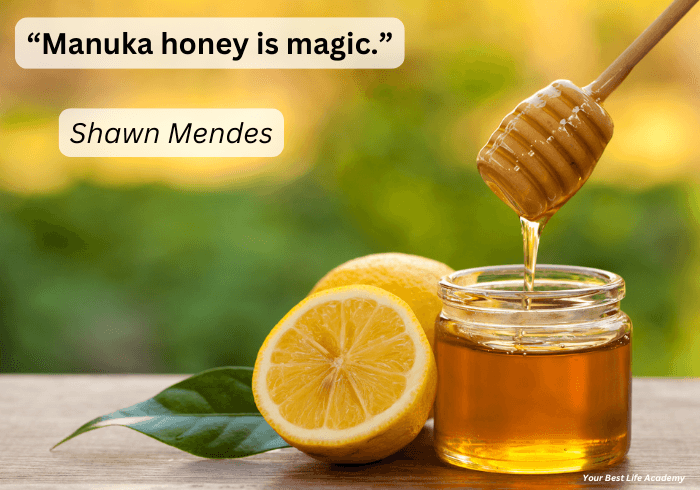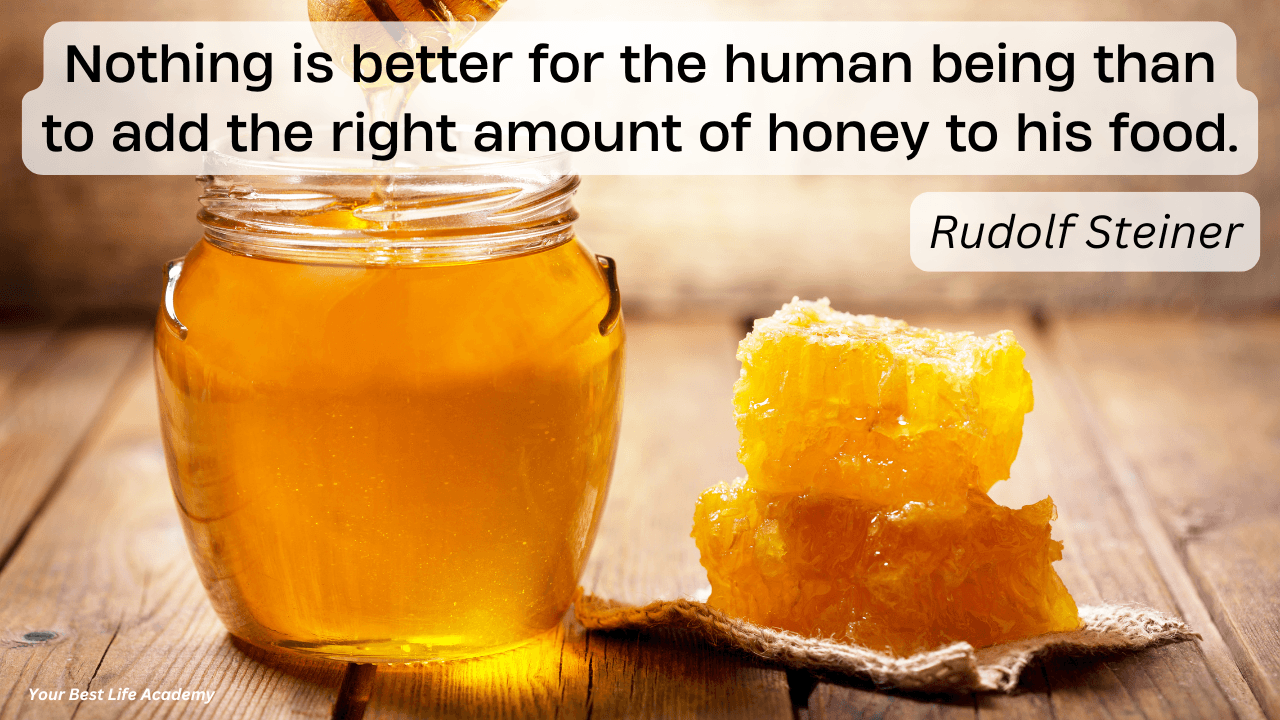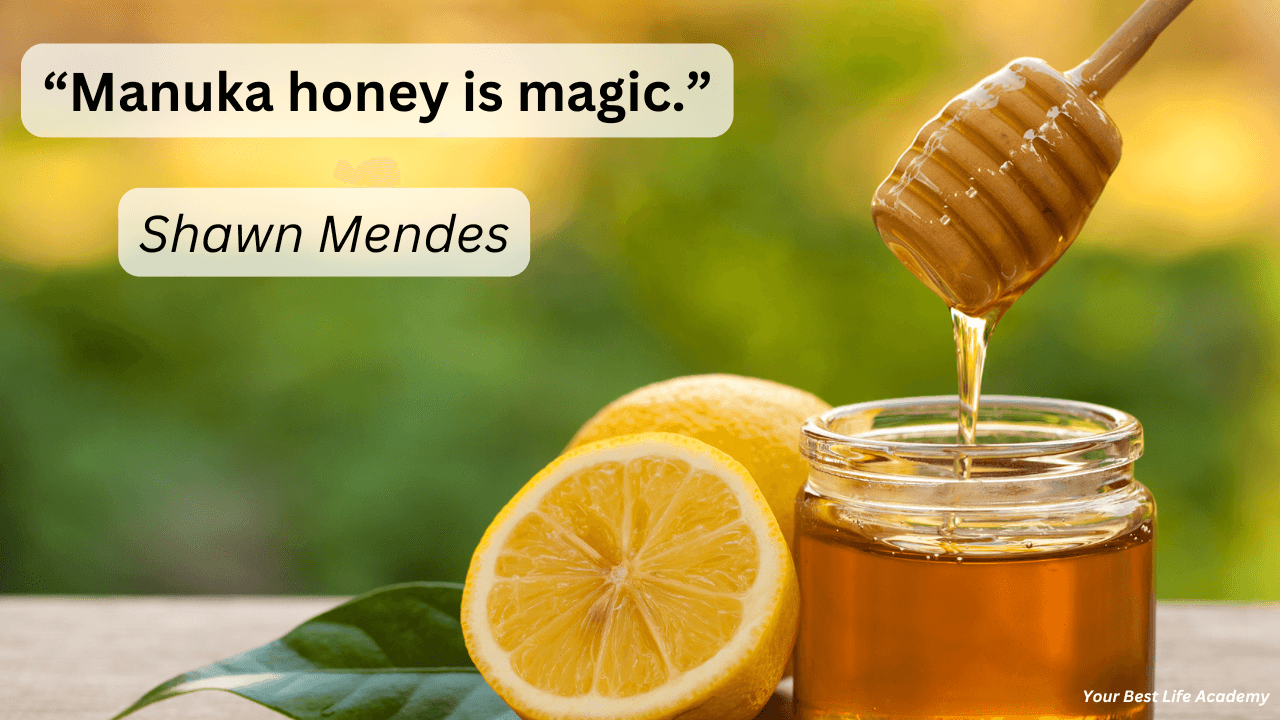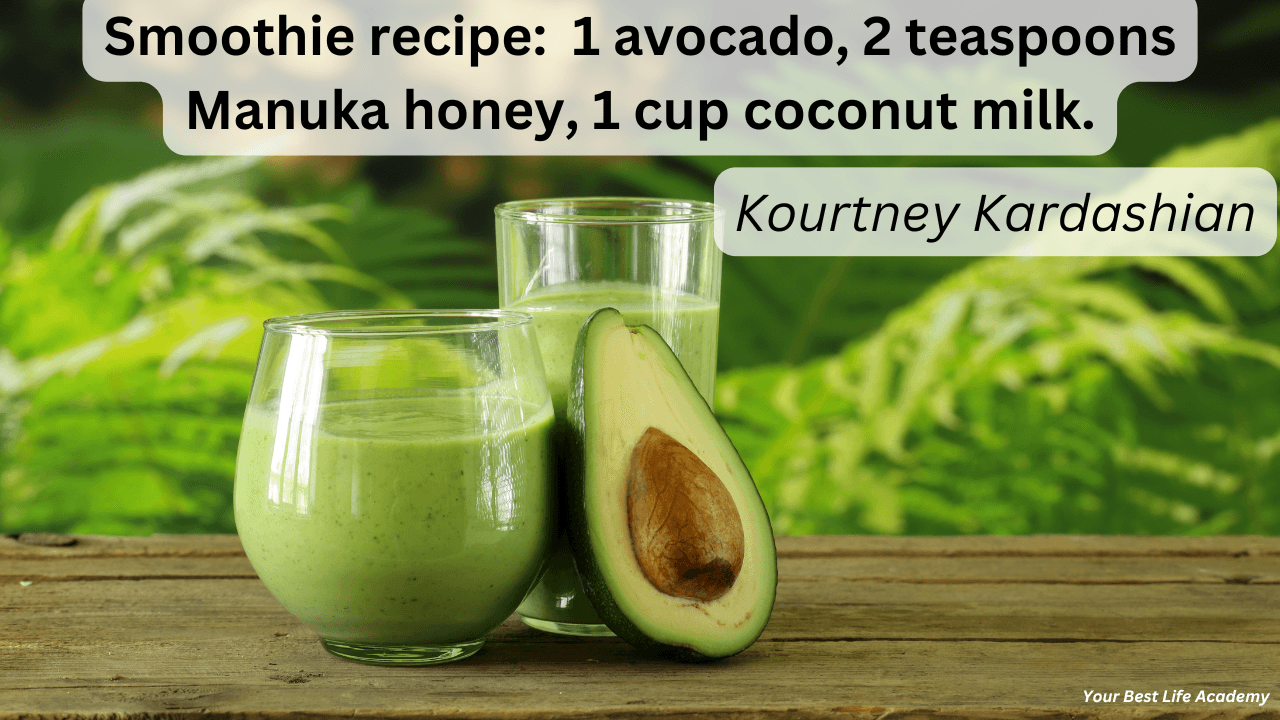From Wound Healing to Skincare: The Magic of Manuka Honey
Published: 12 November 2025
Manuka honey has been cherished for centuries for its powerful healing properties, but did you know it’s also a secret ingredient for glowing, healthy skin?
In this post, we’ll explore how Manuka honey works wonders — not just for wounds and infections, but also as a natural skincare solution. Whether you're struggling with acne, dry skin, or signs of aging, Manuka honey offers a gentle, effective way to nourish your skin. Ready to see the magic behind this golden nectar and how it can transform your skincare routine?

When it comes to natural remedies, few products have gained as much attention as manuka honey. This special type of honey isn’t just a sweet treat - it’s packed with incredible healing properties that make it stand out from regular honey. (Have you tasted it? You can literally taste the difference! It tastes quite complex, unlike a lot of the cheaper honey available in the supermarkets.)
This blog post will explore what makes manuka honey so unique, its many benefits, and any precautions you should know before adding it to your wellness routine. (Because we always need to be aware of any precautions before adding it to our life - especially for sensitive people (like me!) or those with health issues.)
What Is Manuka Honey?
Manuka honey is made from the nectar of the manuka tree (Leptospermum scoparium), which is native to New Zealand, and parts of Australia. The name "manuka" comes from the Maori language, but it’s also known as tea tree honey, or New Zealand honey.
What makes manuka honey so special is its high concentration of a compound called methylglyoxal (MGO), which gives it powerful antibacterial and healing properties. The higher the MGO rating, the stronger the honey’s benefits.
It is fairly thick (much thicker than the more readily available honey in the supermarkets), and it is smooth and sweet. It tastes quite rich and sweet – but not like the sickly sweetness of some honeys you can get in the supermarkets – it’s a much more complex taste. I really like the taste – it’s like a rich sweet treat – especially if you have a sore throat, or are not feeling well.
The Australian Version - Jellybush Honey
While manuka honey is often associated with New Zealand, Australia produces a similar honey called jellybush honey. Like manuka, jellybush honey comes from the nectar of Leptospermum plants, which are native to both countries. The primary difference lies in the specific species of the plant, and the branding.
What Makes Jellybush Honey Unique?
Jellybush honey has the same key component — methylglyoxal (MGO) — that gives manuka honey its antibacterial properties. It is harvested in Australia, and has been gaining recognition for its therapeutic benefits. In fact, some experts argue that Australian jellybush honey can be just as potent, if not more so, than New Zealand’s manuka honey. (I haven't tasted the Australian jellybush honey, so can't comment on the taste difference.)
How to Identify Authentic Jellybush Honey
Just like manuka honey, jellybush honey should be purchased from reputable sources. Look for labels indicating its MGO or TA (Total Activity) rating to ensure you’re getting a high-quality product. (Unfortunately honey is one product that is often adulterated, so we do need to be aware of this.)
Benefits of Jellybush Honey
The benefits of jellybush honey are similar to those of manuka honey.
Wound healing
Boosting immunity
Soothing sore throats
Improving digestive health
Supporting skin health
Whether you choose manuka honey from New Zealand or jellybush honey from Australia, both offer remarkable natural healing properties that can support your health. Manuka honey seems to be more readily available in Australia than our jellybush honey, however that could change over time. (I'll let you know if I ever find any, and taste it, and whether I can tell the difference.)

The Benefits of Manuka Honey
Manuka honey has been used for centuries as a natural remedy, and modern research backs up many of its traditional uses. Some of the top benefits are mentioned below.
1. Wound Healing
Manuka honey is well-known for its wound-healing properties. It can help clean wounds, reduce infection, and speed up the healing process. Hospitals even use medical-grade manuka honey for treating burns and other wounds.
2. Boosts Immunity
Thanks to its antibacterial, antimicrobial, antioxidant, and anti-inflammatory properties, manuka honey can help support your immune system. A spoonful a day might help you fight off colds and other illnesses.
Gisele Bundchen told British Vogue “I always say nature’s our pharmacy. If the kids are sick, I’ll make a fresh ginger tea with lemon and a whole pot of manuka honey. It’s really the best thing you can drink!”
3. Soothes Sore Throats
If you have a sore throat, manuka honey can be a soothing remedy. Its antibacterial properties can help reduce bacteria in your throat, and its thick, sticky texture coats and soothes irritation.
4. Improves Digestive Health
Manuka honey has been found to help with various digestive issues, including acid reflux, gastritis, and irritable bowel syndrome (IBS). It can help balance gut bacteria, and reduce inflammation.
5. Supports Skin Health
Applying manuka honey to your skin can help with acne, eczema, and other skin conditions. Its antibacterial properties help reduce inflammation and kill bacteria, while its moisturizing effects keep your skin soft and hydrated.
6. Oral Health
Unlike regular sugars that can harm your teeth, manuka honey may actually improve oral health. It may help reduce plaque, soothe inflamed gums, and fight harmful bacteria in your mouth.
How to Use Manuka Honey
There are many ways to use manuka honey, some of which are mentioned below. (Keep in mind it’s not cheap – but if money is not an issue, it can be a great addition to your wellness choices.)
As a natural sweetener - Add it to your tea, yogurt, or smoothies.
Topically - Apply directly to minor wounds, burns, or blemishes, before seeking medical advice, if warranted. (Keep in mind that the honey used in hospitals is medical-grade.)
As a throat remedy - Take a spoonful on its own, or mix it into warm water with lemon and/or fresh ginger.
For digestive health - Take a teaspoon daily on an empty stomach (assuming there are no other contraindications).

Drawbacks and Contraindications
While manuka honey is generally safe, there are some things to keep in mind before reaching for it. Please keep these in mind for other people as well – you need to check before giving it to people you don’t know well.
1. Allergic Reactions
If you’re allergic to bees or bee products, you should avoid manuka honey. It can cause allergic reactions in some people. (For this reason, be cautious if offering a smoothie with honey in it – ask about allergies first.
2. Medical conditions and medications
Manuka honey can have effects on certain chemotherapy drugs, and interactions with various other medicines. Always check with a qualified health professional before eating manuka honey if medical conditions exist, and/or medication is being taken.
3. High Sugar Content
Although manuka honey is natural, it’s still a form of sugar. People with diabetes should be cautious, and monitor their blood sugar levels when consuming it.
(I try to avoid foods with high sugar content, so I rarely take it, however, I have taken it in the past, and found it to be helpful – especially if you’re fighting a cold.)
4. Not Suitable for Infants
Like all honey, manuka honey should not be given to babies under 12 months old due to the risk of botulism.
5. Cost
Manuka honey can be quite expensive compared to regular honey. Look for certified, high-quality products to make sure you're getting the real deal. (Even in Australia, Manuka/Jellybush honey is expensive. Manuka honey is widely available here though, even in supermarkets.)

How to Choose Quality Manuka Honey
When buying manuka honey, look for these labels to ensure you’re getting a genuine product. You can look for reviews online, if you’re unsure about the reputation of the brand/company.
UMF (Unique Manuka Factor) - This rating indicates the honey's quality and potency. The higher the number, the stronger the antibacterial properties.
MGO - Another important rating that shows the concentration of methylglyoxal. Again, higher numbers mean stronger antibacterial effects.
KFactor - This is another grading system that measures the purity of manuka honey.
Recipes with Manuka Honey
Below are a couple of recipes to help you to incorporate manuka honey into your wellness routine.
1. Manuka Honey and Lemon Tea
1 cup warm water
1 tablespoon manuka honey
Juice of half a lemon
Mix and enjoy this soothing tea, perfect for sore throats, and boosting immunity. (Adjust to taste, or to what you have available. You could use a lime instead if you don’t have lemons, or reduce the manuka honey a little.
If you have some fresh ginger, you could cut or grate some into your tea as well. (Ginger is a warming food, so if it’s really hot, you might like to give this a miss – however if it’s cold, ginger can help warm you up!)
You could even add a touch of cinnamon, too, preferably Ceylon*.
(* To see why I recommend Ceylon cinnamon over the more commonly available cinnamon (hint: toxicity), you can download our free ebook, Discover the Magic of Cinnamon, which also includes 5 fun recipes with cinnamon.)
2. Avocado & Manuka Honey Smoothie, from Kourtney Kardashian

Final Thoughts
Manuka honey is more than just a sweet treat. It’s a powerful natural remedy that can support your health in many ways. From healing minor wounds, to soothing sore throats, and improving digestion, it’s a versatile product worth having in your pantry.
Remember to choose a high-quality manuka honey, and use it mindfully to enjoy its full benefits. Whether you add it to your tea, or use it as a skincare remedy, you’re tapping into nature’s sweet gift for better health.
Ready to explore more natural ways to boost your health? Check out our Busy Life Health Boost Bundle for more tips and resources to help you live your Best Life!
🙋 Frequently Asked Questions
1. What is the difference between manuka honey and regular honey?
Manuka honey is made from the nectar of the manuka tree, and contains higher levels of antibacterial compounds, particularly methylglyoxal (MGO), which gives it unique healing properties.
2. What is jellybush honey?
Jellybush honey is the Australian version of manuka honey. It comes from similar Leptospermum plants, and offers the same antibacterial and healing benefits.
3. How do I know if my manuka honey is authentic?
Look for labels with UMF (Unique Manuka Factor) or MGO ratings to ensure you’re getting genuine manuka honey. It is good to buy from a reputable source if possible.
4. Can manuka honey be used on wounds?
Yes, medical-grade manuka honey is often used to treat wounds, burns, and skin conditions due to its antibacterial properties. Having said that, it is medical-grade manuka honey, and it is recommended that you seek appropriate medical care and attention when required.
5. Is manuka honey safe for everyone?
It’s generally safe, but people with bee allergies, diabetes, or with medical conditions and/or on medication (especially cancer medication), as well as children under 12 months old should seek professional medical advice prior to trying it.
6. Can I use manuka honey daily?
Yes, you can use it daily in moderation for its health benefits. A teaspoon a day is a common recommendation, keeping in mind that it still has a high sugar content.
📚 Additional Resources
Want more practical ideas and thought-provoking content on a regular basis? Don’t miss out on all the hints & tips that you can implement over time! Sign up for weekly input to help you uplift your life – one week at a time!
We have also created stand-alone pages in the 7 life segments with all blogs, freebies, and paid products grouped together, so you can easily find and review items of interest to you. Click on the links below to find the areas of most interest to you!
Life Purpose & Best Life - Health & Wellness - Relationships - Abundance - Personal Growth - Peace of Mind - Spirituality & Energy.
📖 References/Further Reading
https://www.webmd.com/a-to-z-guides/manuka-honey-medicinal-uses
https://www.healthline.com/nutrition/manuka-honey-uses-benefits
https://www.uclahealth.org/news/release/preliminary-study-shows-potential-manuka-honey-nutraceutical
https://bjssjournals.onlinelibrary.wiley.com/doi/abs/10.1002/bjs.1800780435
https://www.australiangeographic.com.au/news/2011/03/native-honey-a-sweet-antibacterial/
https://www.kiehls.com/skincare-advice/manuka-honey-skin-benefits.html
https://www.vogue.co.uk/fashion/article/gisele-bundchen-british-vogue-interview
📝 Disclaimer
The information provided in this blog is for general informational purposes only. I am not a medical professional, and the content shared here is based on research and personal knowledge. While manuka honey and other natural remedies can support overall wellbeing, they are not a substitute for professional medical advice, diagnosis, or treatment.
If you have any health concerns, allergies, or medical conditions, please consult a qualified healthcare professional before using manuka honey or any other natural product. Always use caution, especially if you are pregnant, breastfeeding, or taking medications.
Your health and safety are important, so please make informed decisions that are right for you and your unique situation.
Your Best Life Newsletter
Your Weekly Dose of Inspiration to Live Your Best Life!
✔️ Get practical tips to feel happier, healthier, and more fulfilled.
✔️ Discover easy ways to bring more joy and purpose into your life.
✔️ Be the first to know about new blogs, free resources, and special offers.
💌 Join our supportive community today — it's free!




